Canadian Connective Tissue Society Trainee Workshop
| Date: | Wednesday May 29, 2019 |
| Time: | 12:30 – 17:00 h |
| Location: | Thomson House, 3rd floor, Ballroom 3650 McTavish St, Montreal, QC H3A 1Y2 |
Objective
Provide an opportunity for trainees to:
- Learn about career paths in academia and industry
- Incorporate entrepreneurship in scientific research
- Refine their presentation and communication skills
- Network with other graduate students, post-doctoral fellows, and researchers
Schedule:
| 12:30 – 13:30 h | Introduction, Lunch and Networking |
| Lunch session | Dr. Jenna Usprech – Building an online community of trainees in connective tissue research. Introduction to a national online community platform for trainees in connective tissue research. |
| 13:30 – 14:30 h | Career Panel Multidisciplinary and multi-sectoral experts to provide insights into their career pathways, perspectives and pitfalls. |
| 14:30 – 15:10 h | District 3 Innovation Centre – How to start a business based on research. Representatives from District 3 to discuss their organization’s mission and how to build a start-up company, transferring research innovations from academia into the market. |
| 15:10 – 15:20 h | Coffee/Tea Break |
| 15:20 – 16:50 h | Mr. Jay Olson – Persuasive public speaking Jay Olson to highlight communication skills necessary for an effective presentation and to aid presenters in engaging and persuading their audiences in both academic and business settings. Topics will include handling nervousness, enhancing clarity, improving body language, and holding the audience’s attention. |
| 16:50 – 17:00 h | Closing Remarks |
Speakers/Panelist:
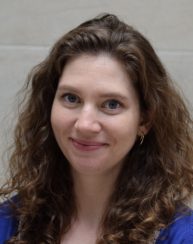 Dr. Jenna Usprech:
Dr. Jenna Usprech:
Jenna Usprech is a post-doctoral fellow at the University of Toronto. Her work focuses on developing an online platform to connect connective tissue research trainees to one another to promote collaboration and the development of professional skills. Prior to this role, Jenna obtained her Ph.D. in Biomedical Engineering at the University of Toronto focusing on heart valve tissue engineering, and her MASc. from Queen’s University focusing on cartilage tissue engineering.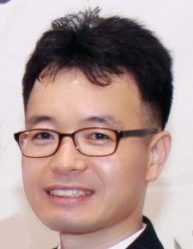 Dr. Byeong-Ui (Ben) Moon:
Dr. Byeong-Ui (Ben) Moon:
Byeong-Ui (Ben) Moon is a Research Officer at the National Research Council (NRC) Canada, Medical Devices Research Center, Boucherville, Canada. Currently, he is a project leader for research that involves organ-on-a-chip, aqueous two-phase systems and automated centrifugal microfluidic systems for biomedical and healthcare applications. Ben obtained his Ph. D. from the University of Groningen, the Netherlands. Prior to join the NRC, he also worked at the University of Toronto (University Health Network) and Ryerson University (St. Michael’s Hospital), as a post-doctoral research fellow.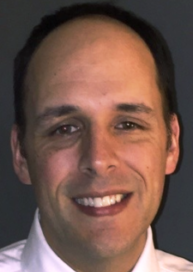 Dr. Thomas Moore:
Dr. Thomas Moore:
Thomas Moore is a Project Lead for the Medical Device Development team at Jubilant DraxImage in Kirkland, Quebec. His role involves managing medical device and medical device/drug product development projects in accordance with applicable standards and regulations. Thomas has over 10 years experience as a Biomedical Engineer designing and developing in vitro diagnostic and prognostic tools for applications like in vitro disease modeling, point-of-care diagnostics, myocardial perfusion imaging, and cell-therapy. This experience was achieved by working at Abbott Point of Care, Jubilant Draximage, Millenium Biologix and in the pursuit of graduate degrees. He obtained his Ph. D. from the University of Toronto and his MASc. from Queen’s University.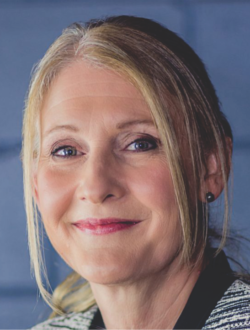 Dr. Lisbet Haglund:
Dr. Lisbet Haglund:
Dr Haglund has a strong interest in musculoskeletal research spanning from tissue injury, degeneration and inflammation to regenerative medicine, and she has been actively involved in bone, cartilage and intervertebral disc research throughout her career. Since joining McGill’s faculty in 2009, she has developed a research program with focus on clinical and translational research in spine regeneration, degeneration and pain, which impacts on the fields of spine biomechanics, neurochemistry and neurogenic pain. He laboratory is fortunate to be able to study human disease in human tissue. The Haglund laboratory have in a series of publications demonstrated a direct link between load, degeneration and pain in human spine tissue. The research team have developed bioreactors and procedures to preserve and keep human tissue living for long periods of time. The bioreactors allow load to be applied and they can be programed to mimic a variety of daily life situations. This system opens endless possibilities to learn more about how back pain related to disc degeneration occurs, and it provides a platform to evaluate potential treatment strategies.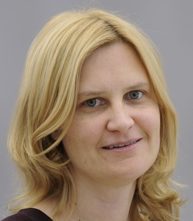 Dr. Bettina Willie:
Dr. Bettina Willie:
Bettina Willie is an Associate Professor in the Department of Pediatric Surgery and Associate Member of the Departments of Biomedical Engineering and Surgery at McGill University. She is an investigator at Shriners Hospital for Children®- Canada. Dr. Wille obtained her Ph.D. in Bioengineering from the University of Utah and completed her postdoctoral training at the University of Ulm, Hospital for Special Surgery. Her research focuses on the importance of the mechanical environment in bone for adaptation, regeneration and aging. Her work aims to reveal the cellular mechanisms underlying bone cell mechanoreception with the goal to improve targeted therapies for treating and preventing bone loss and delayed bone healing.
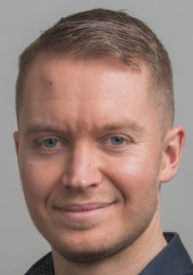 Mr. Jay Olson:
Mr. Jay Olson:
Jay Olson, M.Sc., is a Ph.D. candidate in Psychiatry at McGill University studying suggestion and effective persuasion. He recently won First Place in North America at the Council of Graduate Schools’ 3 Minute Thesis competition. Jay helps companies, organizations, and students apply the science of public speaking to become more persuasive, engaging, and confident speakers. Dr. Laila Benameur:
Dr. Laila Benameur:
Laila Benameur is the cofounder of Impactful Health R&D, a start-up that develops active packaging solutions to prolong the shelf life of fresh fish. Laila completed a PhD in nanoscience and nanotoxicology from Aix-Marseille University, and her Post-Doctoral research at McGill. She is currently leading the Quebec Scientific Entrepreneurship(QcSE) program at District 3 Innovation Center. In partnership with MITACS, FRQ and District 3 Innovation Centre, QcSE provides an online lab-to-market program to transform Quebec’s researchers into entrepreneurs.
